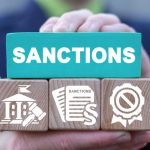Several Canadian provincial executives resisted Prime Minister Justin Trudeau’s invocation of emergency powers on Monday to shut down the Freedom Convoy protests against vaccine mandates.
“I am concerned that there’s a certain kind of person who will hear if the federal government proceeds with this, who will be further enflamed, and that could lead to a prolongation of some of these protests,” Alberta Premier Jason Kenney said on Monday.
“The view I have, which I conveyed to the prime minister during the forum of first ministers this morning, is that this is not necessary, at least for an Alberta context,” Kenney told reporters.
Kenney stressed that he believes provincial officials already have the powers needed to handle protesters who break the law. He mused several times during press conferences on Monday that unnecessary federal overreach could compromise the authority of provincial governments and further inflame public tensions.
“I think at this point, for the federal government to reach in over top of us, without offering anything in particular, would frankly be unhelpful. I think we need to find ways to effectively enforce without escalating the situation,” he said.
Saskatchewan Premier Scott Moe also said his administration “does not support the Trudeau government invoking the Emergencies Act.”
“The illegal blockades must end, but police already have sufficient tools to enforce the law and clear the blockades, as they did over the weekend in Windsor,” Moe said, making an argument similar to Kenney’s.
“If the federal government does proceed with this measure, I would hope it would only be invoked in provinces that request it, as the legislation allows,” Moe added.
Manitoba Premier Heather Stefanson described Trudeau’s move as “unnecessary” and provocative. She refused to “escalate” the situation by following Trudeau’s lead.
“The use of the Emergencies Act is very, very serious, and needs to be considered very seriously before enacting something like that,” Stefanson said after a minister’s meeting with Trudeau on Monday.
“I think it’s important that Manitobans and Canadians know and understand that it’s not necessary, and we need to think very carefully and clearly before going in that direction,” she said.
Stefanson praised law enforcement agencies for “doing very good work” during the protests, and said, they should be left to “do their jobs.”
“At some point, these protests will end one way or another. We just encourage those protesters, we’ve heard you loud and clear,” she said.
Quebec Premier Francois Legault said he was “very clear” during his conversation with Trudeau that “the Federal Emergencies Act should not, must not, apply in Quebec.”
“We don’t have any problems in Quebec so far. The Surete du Quebec has everything under control,” Legault said, referring to his provincial police force.
“I think that at this moment, it would not help the social climate. There’s a lot of pressure right now, and I think we have to be careful. We really don’t need to throw oil on the fire,” he said, drawing parallels with the controversial invocation of emergency powers in Quebec in 1970 by the current prime minister’s predecessor and father, Pierre Trudeau.
Legault added that he thought the situation in the partially paralyzed national capital of Ottawa was more severe and could justify stricter measures in response.
“I can understand that enough is enough in Ottawa. You can protest, but you can’t do what they’ve been doing for two weeks,” he said.
While the other premiers faced some disagreement from opposition parties in their provinces, Legault’s position was swiftly endorsed by opposition leaders in Quebec. In turn, the National Post on Monday quoted opposition leaders across Canada criticizing Trudeau for invoking the Emergencies Act, either because they opposed the emergency powers as “ham-fisted” or because they thought Trudeau was conceding “failure” by resorting to them.
The National Post also observed that premiers supportive of Trudeau’s emergency powers appeared queasy about using them, demanding assurances that the measures would be exercised for sharply limited periods of time in clearly-defined trouble spots, with full cooperation between federal and provincial officials.
Even the most enthusiastic supporter of Trudeau’s action, Ontario Prime Minister Doug Ford, said he told the prime minister that “these measures should be targeted and time-limited.”
“Those participating in illegal blockades in Ontario and across Canada need to know there are serious consequences for their actions. That is why, similar to the steps our government took last week, I support the federal government in providing additional tools to help police resolve the situation in the nation’s capital,” said Ford, who declared his own provincial state of emergency on Friday.


